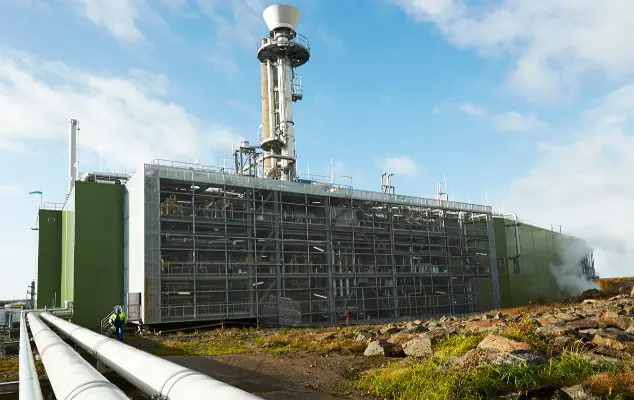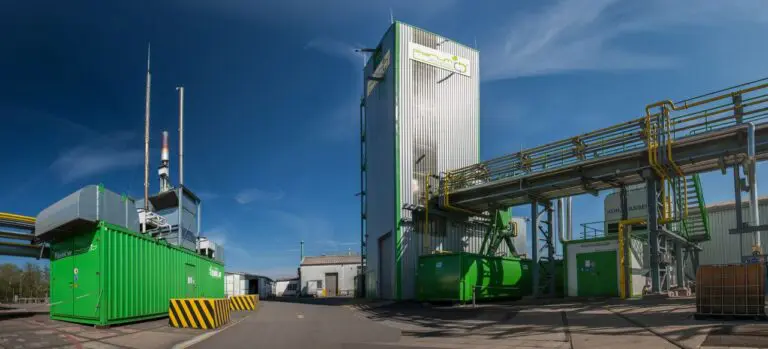The Gothenburg Biomass Gasification Project (GoBiGas), which features a gasification system supplied and installed by Finnish paper pulp and biowaste treatment equipment manufacturer, Valmet has been officially inaugurated.
According to Valmet the plant is the first of its type in the world and was commissioned in late 2013 and will gasify forestry wastes and wood pellets.
The company said that the gas produced is similar to natural gas and will primarily be used as a biofuel for the transportsector.
The gasification process
Valmet explained that the biomass is gasified in a process called indirect gasification, developed by the Austrian company Repotec.
In this process, the gasification takes place in a separate reactor and heat is transferred from a combustion chamber by circulation of hot bed material.
Biomass is fed into the gasifier, where, on contact with the hot bed material, it undergoes thermochemical decomposition.
Because of the high quality of the biomethane, Valmet said that after the cleaning and methanation, the gas is imported to the natural gas grid where it is mixed with natural gas and used in Göteborg Energi’s power plant.
“The indirect gasification generates high energy gas with high heating value that can be mixed with natural gas. This makes it possible to replace a lot of today’s fossil transportation fuel by fossil-free fuel in gas powered vehicles,” explained Johanna Lindén, Valmet’s Director of Scandinavia, Energy.
Valmet handled the engineering work for the gasification plant under license from Repotec.
The company also claimed that combining a gasification plant using biomass as fuel and a methanation plant is unique in the world.
Read More
ValMet-so What’s Next
The rationale behind Metso’s recent demerger was to create two more focused companies, better able to utilise their respective strengths. But just what are the strengths of the newly formed Valmet, and why are they important for the waste industry?
Waste Wood Pyrolysis Plant to Produce 50000 tpa of Bio-oil
A new facility pyrolysis facility that will produce around 50,000 tonnes per year of bio-oil from waste wood in Joensuu, Finland has been commission by Finnish sustainable energy company, Fortum.
The Waste Gasification Debate
While a number of major projects are underway globally, waste gasification has a chequered past. Many argue that when traditional thermal treatment with heat recovery is able to achieve such high efficiencies, gasification is complex and unnecessary. Others point to low emissions and the potential to produce products such as hydrogen. WMW asked some experts for their thoughts on the subject…








